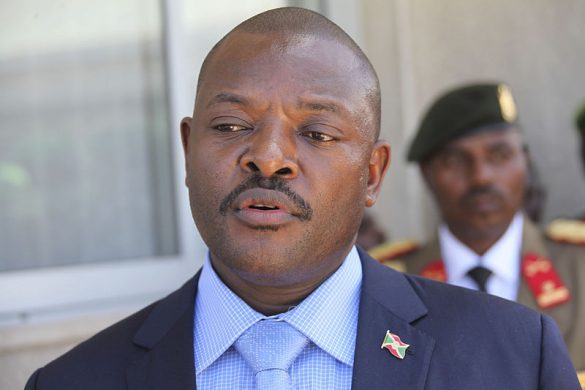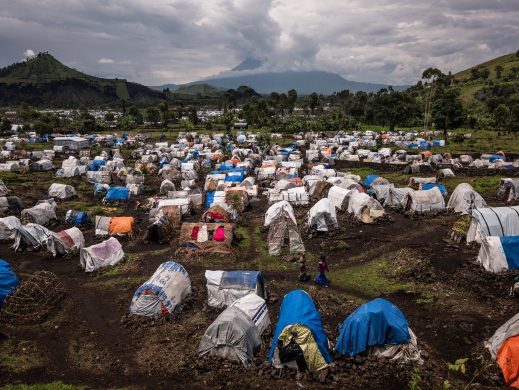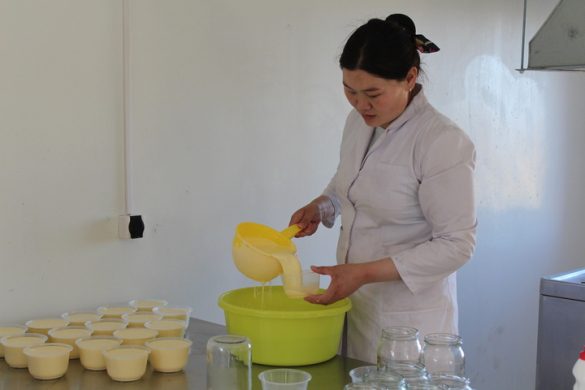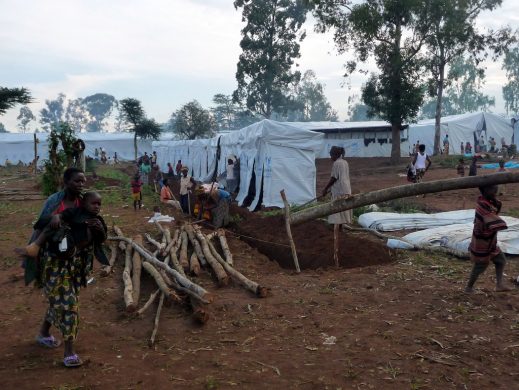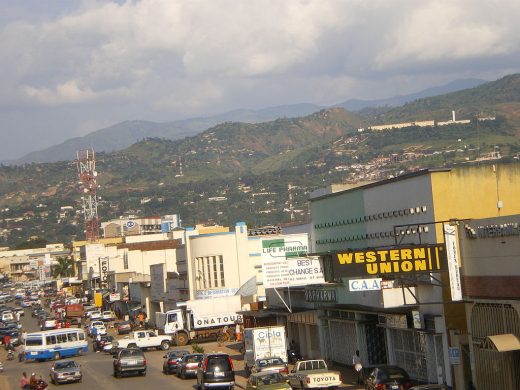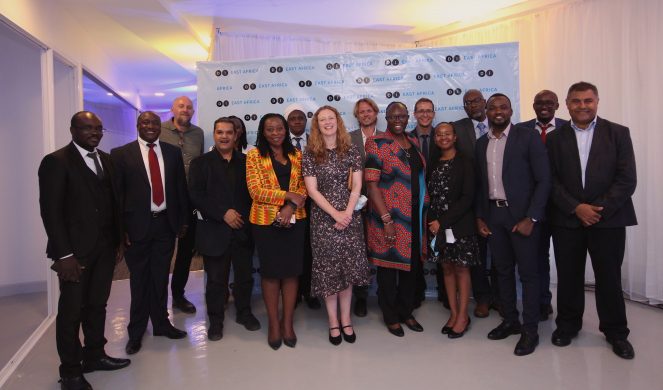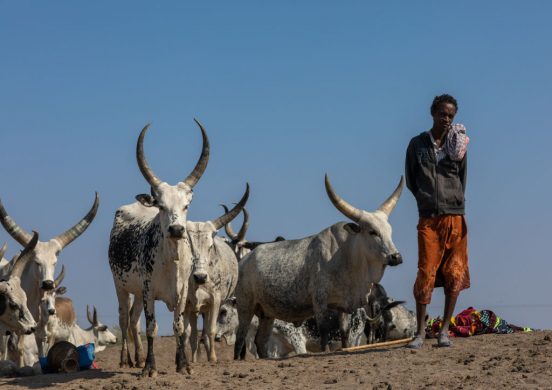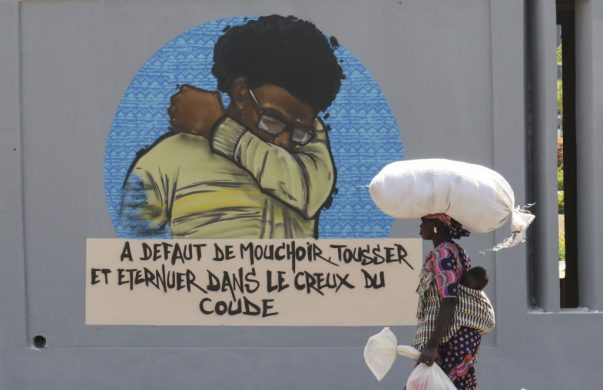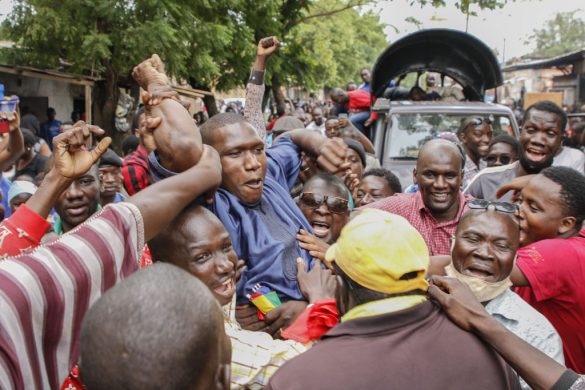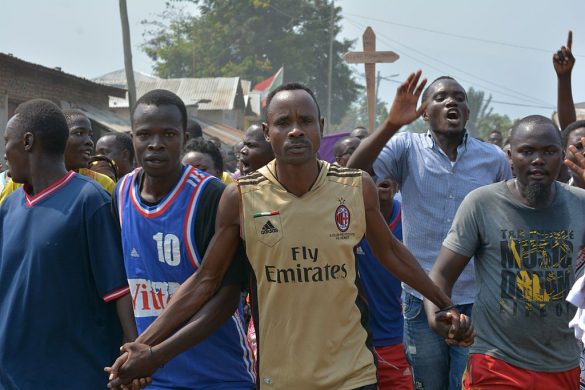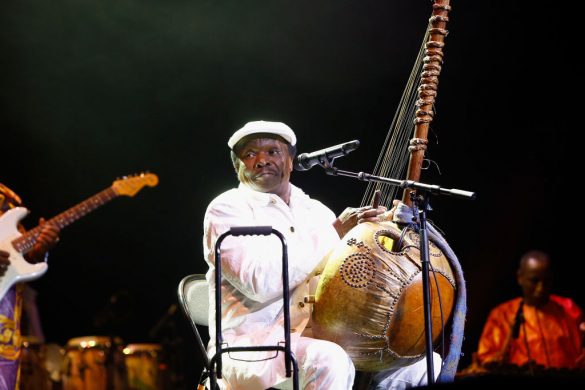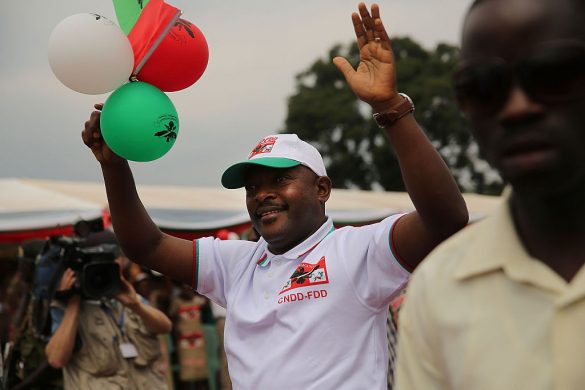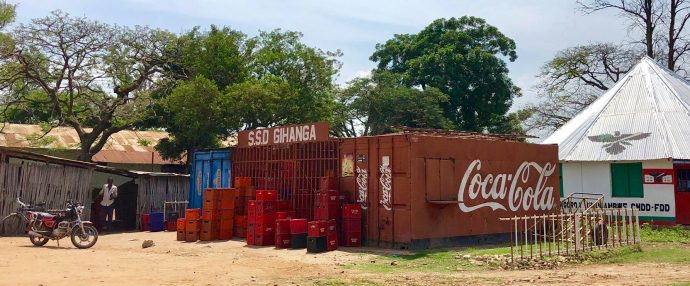GENEVA, 20 September, 2016 (OHCHR) – The final report of the United Nations Independent Investigation in Burundi (UNIIB)* published Tuesday, describes “abundant evidence of gross human rights violations,” possibly amounting to crimes against humanity, by the Government of Burundi and people associated with it.
Given their findings which “suggest widespread and systemic patterns of violations,” the country’s history of inter-ethnic violence and impunity, and the danger of a spiral of mass violence, the experts urged the Government of Burundi, the African Union, the UN Human Rights Council, the Security Council and other international actors to take a series of robust actions to preserve the achievements made in the Arusha Accord and in the 2005 Constitution, which led to the longest period of peace Burundi has known since its independence.
Sanktioner og militært indgreb kan komme på tale
These include the immediate setting up of an international Commission of Inquiry, the involvement of other independent international judicial processes, reconsideration of Burundi’s membership of the Human Rights Council and possible invocation of Chapter VII of the United Nations Charter if the violations continue and the Government continues to fail to comply with a 29 July 2016 Security Council resolution authorizing the deployment of a UN police force.**
Because the patterns of violations clearly suggest that they are deliberate and the result of conscious decisions, it is in the Government’s power to stop them, said the experts.
Noting the Burundian Government’s “blanket denial” of almost all alleged human rights violations and the difficulty of precisely quantifying all the violations that have taken place, and may continue to take place, in a “situation as closed and repressive as Burundi,” UNIIB documented hundreds of cases of summary executions, targeted assassinations, arbitrary detention, torture and sexual violence.
Henrettelser foretaget af militæret – støttet af ungdomsbevægelse
Executions have been committed on a large scale by the security forces, often supported by the ruling party’s youth wing known as the Imbonerakure, the report says, adding that the majority of the victims were opposed, or perceived to be opposed, to the third mandate of President Nkurunziza.
The report cites the testimony of a former senior officer of the National Defence Force, who confirmed the existence of several lists of people to be eliminated by security forces, and notes the widespread reports of mass graves.
Læs mere om Imbonerakure og situationen i Burundi i artiklen Det glemte land og den glemte mand (28.09.14)
Enforced disappearances have been another common feature of the crisis, the report says, with information and names received from witnesses concerning a group of twelve senior members of the Government and agents of the Service national de renseignements (SNR), police and army “who have allegedly been responsible for many cases of enforced disappearances, and who report directly to the inner circle of the Executive.”
Begyndende personkult omkring præsidenten
Members of civil society, especially human rights defenders and journalists, have been primary targets of systematic repression by the authorities, but there is also no room for dissenting positions within government circles or the ruling party, the report says, adding “There are worrying signs of a personality cult being built around the President.”
UNIIB interviewed witnesses and victims who identified the location of many unofficial places of detention, including within properties of top government officials, in secret SNR premises, in the ‘Permanence’ of the ruling party the CNDD-FDD in Ngagara, as well in numerous other locations, including two bars and a building belonging to a water supply company.
The UNIIB report also documents the widespread use of torture and ill-treatment. Elements of the intelligence services, the police, the Imbonerakure, and to a lesser extent, the army were “consistently identified as the perpetrators, and some individuals, including senior figures of the security apparatus, have been repeatedly cited,” the report says. It details 17 different forms of torture and ill-treatment reported to the independent UN investigators, including the attachment of weights to victims’ testicles, the crushing of fingers and toes with pliers, progressive burning with a blow torch, and being forced to sit in acid or on broken glass or nails.
Mønster i den seksuelt betonede vold
The UN investigation team also identified a pattern of sexual and gender-based violence, including numerous reports of sexual violence against women and girls trying to flee the country.
Others were apparently targeted because they were “related to males who opposed the third term, or were perceived as political dissidents.”
The team also documented cases involving extreme sexual mutilation, as well as allegations of sexual violence against men, particularly in detention.
“Any semblance of opposition to the Government is dealt with ruthlessly and seemingly without fear of accountability,” the report says, noting that “the accountability mechanisms are exceedingly weak and impunity is endemic.”
Three national commissions of inquiry set up by the authorities into human rights abuses have led nowhere: “UNIIB regrets that the practice of setting up commissions of inquiry appears to be a means for the Burundian authorities to circumvent accountability.”
The current crisis, it adds, “has further entrenched the pre-existing systemic and institutional dominance of the executive branch over the judiciary.”
“In light of the ineffectual accountability institutions set up by the Government, independent international judicial processes must consider whether international crimes were committed,” the report says.
Krisen kan brede sig til nabolandene
“We are gravely concerned about the general trend of ethnically divisive rhetoric by the Government, as well as others, which may carry a serious potential of the situation spiralling out of control, including beyond Burundi’s borders,” said the experts.
The report also outlines the massive displacement of almost 400,000 people as refugees and internally displaced people, and the devastating impact of the crisis on the country’s economy and social systems.
Expressing their “alarm about the potential threat to peace and security in the Great Lakes region,” the independent experts called on “the United Nations, particularly the Security Council, to discharge effectively its mandate to ensure peace and security, and to protect… the civilian population from threat of physical violence, under chapter VII of the United Nations Charter.”
They also recommended the Human Rights Council to “consider whether Burundi can remain a member of the Council” if the situation prevailing in the country does not change radically and the violations that have already occurred are not effectively addressed.
The full report, which will be presented by the experts of the UN Independent Investigation on Burundi to the Human Rights Council on Tuesday, 27 September 2016, is available here: http://www.ohchr.org/EN/HRBodies/HRC/RegularSessions/Session33/Pages/ListReports.aspx
* The UN Independent Investigation on Burundi (UNIIB) was established by the Human Rights Council on 17 December 2015 (resolution A/HRC/S-24/1) to undertake “an investigation into violations and abuses of human rights with a view to preventing further deterioration of the human rights situation.”
The three independent experts appointed to head the Investigation were Mr. Christof Heyns, former UN Special Rapporteur on extra-judicial, summary or arbitrary executions (Chair); Ms. Maya Sahli-Fadel, African Commission on Human and Peoples’ Rights, Special Rapporteur on Refugees, Asylum-seekers, Migrants and Internally Displaced Persons; and Mr. Pablo de Greiff, the UN Special Rapporteur on the Promotion of Truth, Justice, Reparation and Guarantees of Non-Recurrence.
** A Security Council action based on Chapter VII may entail: Sanctions and Other Committees monitoring mandatory measures, including arms embargoes, travel bans, financial or diplomatic restrictions (Article 41); the authorization of the use of force by a peacekeeping operation, multinational forces, interventions by regional organizations or the establishment of international civil and security presences, with appropriate equipment and personnel as required, as well as military observers (Article 42), and measures to “prevent an aggravation of the situation,” including a withdrawal of armed forces, a cessation of hostilities, a conclusion or observance of a ceasefire or a creation of the conditions necessary for unimpeded delivery of humanitarian assistance (Article 40).

